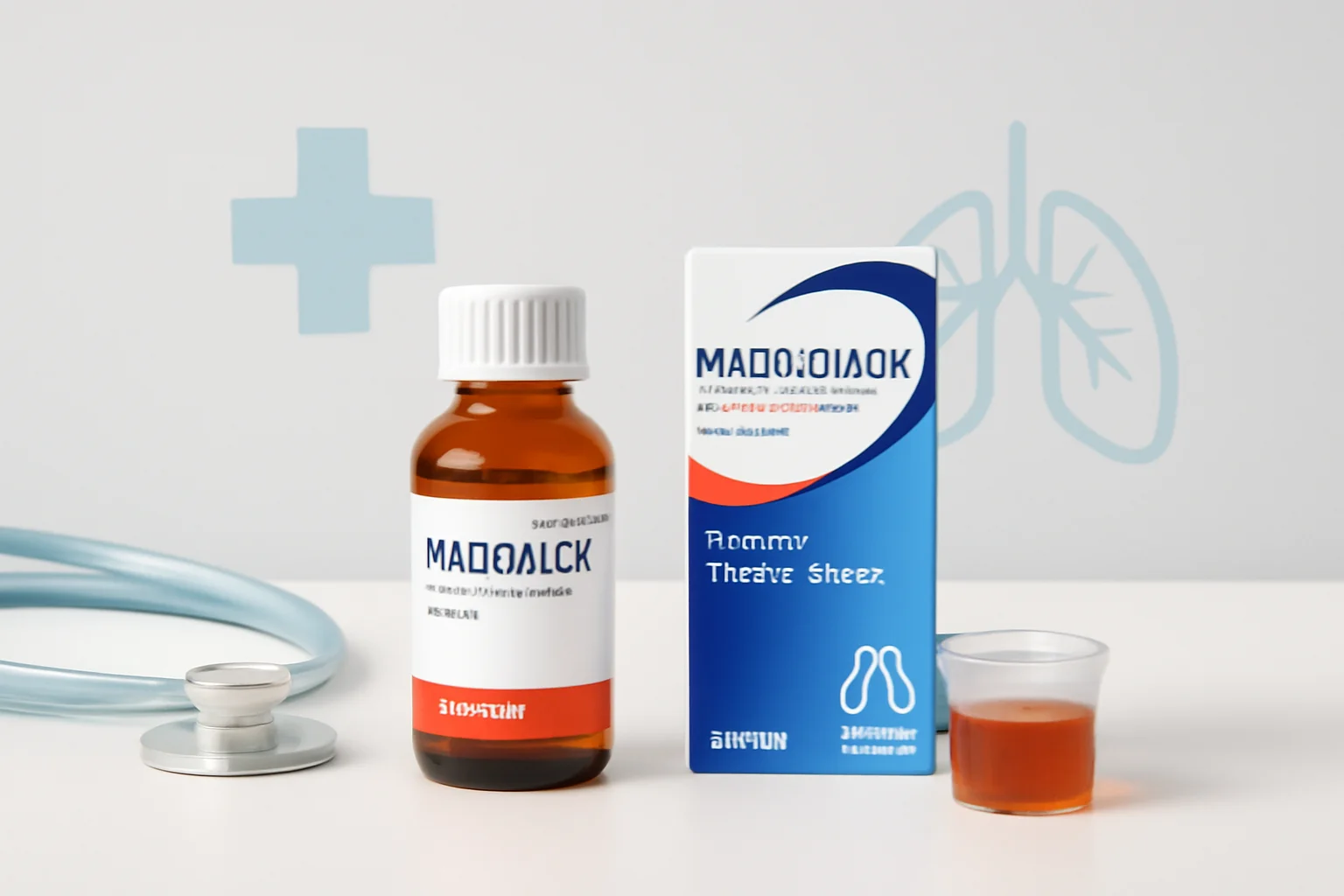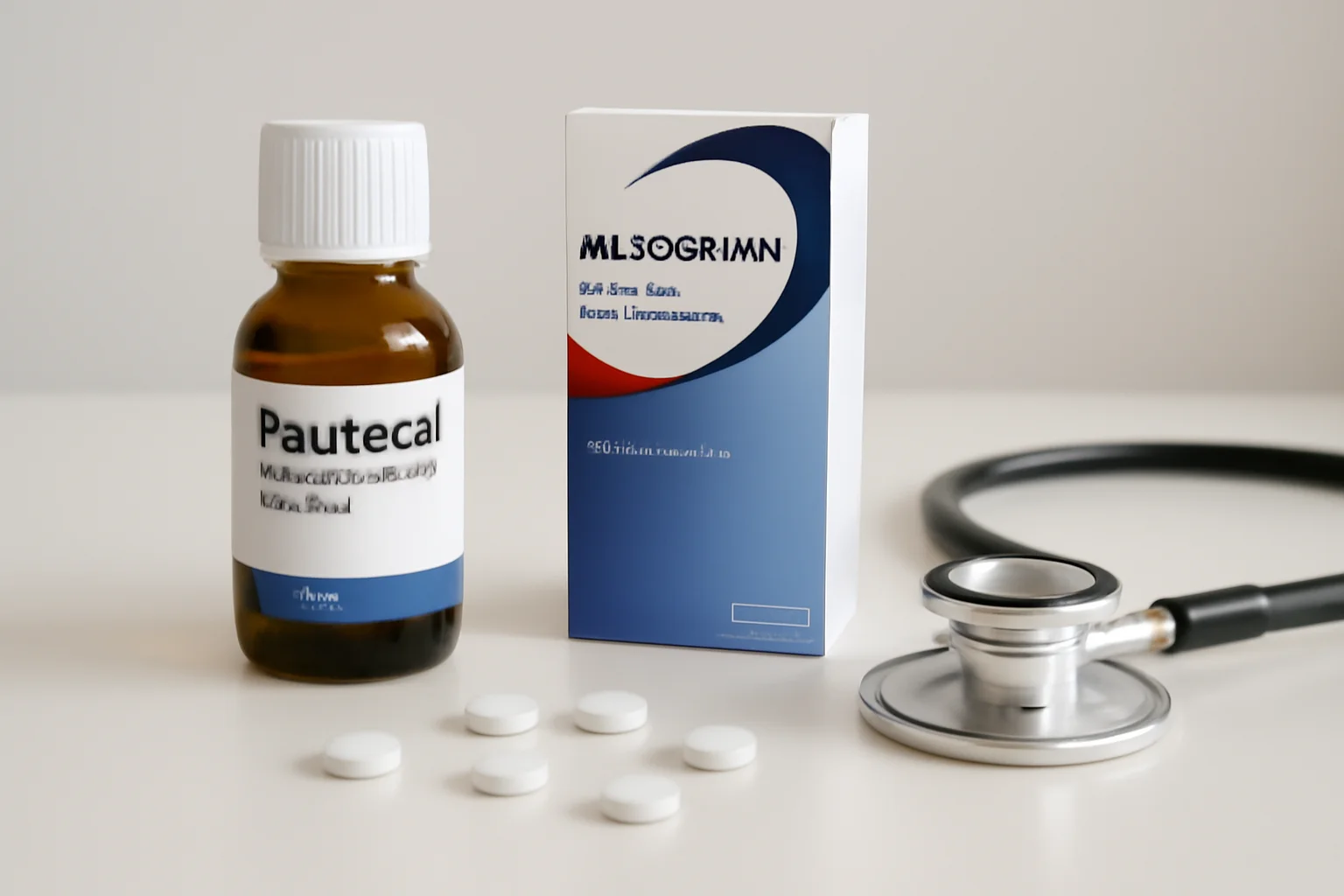
Paxirasol and Mucosolvan: Effective Solutions for Cough and Respiratory Issues
A respiratory diseases are often accompanied by coughing, which can occur for various reasons. Coughing can be dry or productive, and the question of medications often arises during treatment. Two popular cough suppressants and expectorants are Paxirasol and Mucosolvan, which contain different active ingredients and affect the respiratory system in distinct ways. Choosing the right medication often depends on the nature of the symptoms, the type of disease, and the individual condition of the patient.
Paxirasol: Mechanism of Action and Application
Paxirasol contains bromhexine, which belongs to the class of expectorants. The primary function of bromhexine is to reduce the viscosity of mucus found in the respiratory tract’s mucous membranes, thereby facilitating the removal of accumulated secretions. The use of this medication is particularly recommended in cases where the cough is productive, meaning there is thick mucus in the airways that makes breathing and coughing difficult.
Patients taking Paxirasol may experience relief from coughing soon, and the mucus can be expelled from the airways more easily. Doctors often recommend Paxirasol for bronchitis, pneumonia, and other respiratory diseases where mucus accumulation causes symptoms.
It is important to mention that Paxirasol not only suppresses coughing but also helps in the healing process due to its anti-inflammatory effect on the airways. Regular use of the medication may contribute to faster recovery from respiratory diseases, but the exact dosage and duration of use should always be determined based on medical advice.
There are also side effects associated with Paxirasol, such as dizziness, headaches, or gastrointestinal disturbances. These side effects are rare, but it is crucial for patients to monitor their reactions while taking the medication. If any unusual symptoms occur, it is advisable to discontinue treatment and consult a doctor.
Mucosolvan: Effects and Areas of Application
Mucosolvan contains ambroxol, which also has an expectorant effect, but unlike Paxirasol, ambroxol stimulates mucus production while reducing its viscosity. This helps clear the airways, especially in cases where the mucus is too thick and difficult to expel.
The use of Mucosolvan can be particularly beneficial in cases of bronchitis, asthma, or chronic obstructive pulmonary disease (COPD), where mucus accumulation can pose significant problems. Mucosolvan promotes coughing, making it easier for patients to get rid of secretions accumulated in the airways.
Patients generally notice improvement quickly during the use of the medication, as Mucosolvan’s effects manifest relatively rapidly. Doctors often recommend Mucosolvan as part of combination therapies, alongside other cough suppressants, to achieve the best possible results.
Side effects of Mucosolvan may include stomach discomfort, nausea, or skin rashes, but these are usually mild and transient. During the use of Mucosolvan, it is advisable to pay attention to the body’s reactions, and if any problems arise, consult with a doctor immediately.
Although Mucosolvan and Paxirasol serve similar purposes, their mechanisms of action differ, which is why doctors select the appropriate medication based on the type of disease and the patient’s condition.
Comparison: Paxirasol and Mucosolvan
When comparing Paxirasol and Mucosolvan, it is important to consider that both medications contain different active ingredients and affect the respiratory system in distinct ways. While Paxirasol reduces mucus viscosity, Mucosolvan stimulates mucus production and focuses on thinning the mucus.
In making a choice, it is worth considering the nature of the cough: if the cough is productive and the accumulation of secretions is the problem, Paxirasol may be the appropriate choice. On the other hand, if the cough is dry and there is a need to clear the airways, Mucosolvan may be more effective.
Patients’ experiences can also aid in the decision-making process, as some may respond better to Paxirasol, while others may find Mucosolvan more effective. Medical prescriptions and the individual condition of the patient always play a key role in selecting the appropriate medication.
The effectiveness of the medications can be influenced by the patient’s age, overall health status, and existing diseases. Therefore, it is important for patients to seek medical advice before taking any cough suppressants or expectorants.
Conclusions and Recommendations
Paxirasol and Mucosolvan are two popular medications used to treat respiratory diseases. Both formulations have different mechanisms of action, so when choosing, it is essential to consider the nature of the cough and the individual needs of the patient.
To select the appropriate medication, it is advisable to consult a doctor, who can recommend the most suitable treatment based on the patient’s condition and the type of disease. Both Paxirasol and Mucosolvan can help alleviate coughing and clear the airways, but patients should also be informed about potential side effects and possible interactions.
It is important for patients to monitor their reactions while using the medications and to consult their doctor immediately if any unusual symptoms occur.
**Warning:** This article does not constitute medical advice. Always seek your doctor’s advice for health issues!

